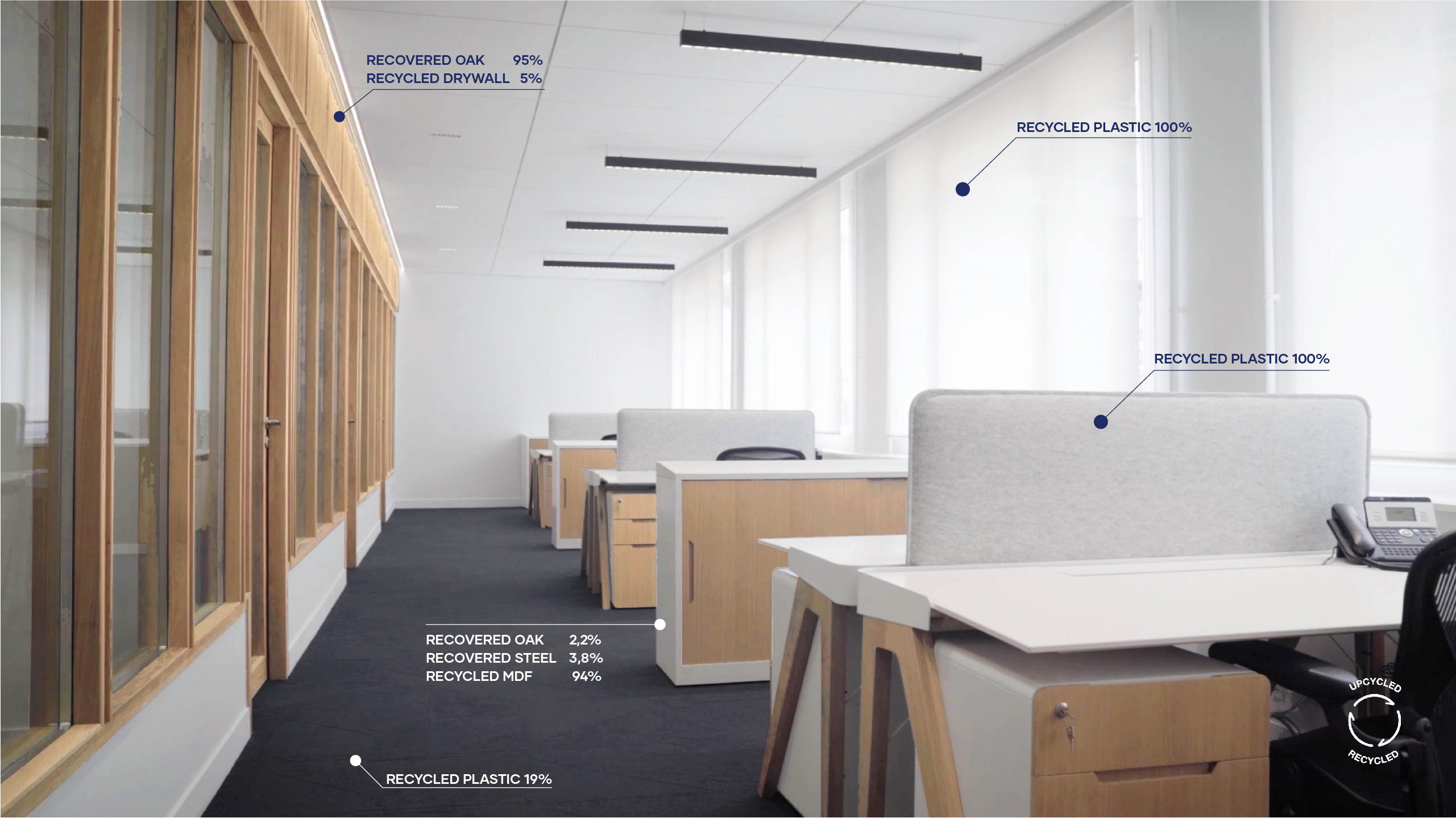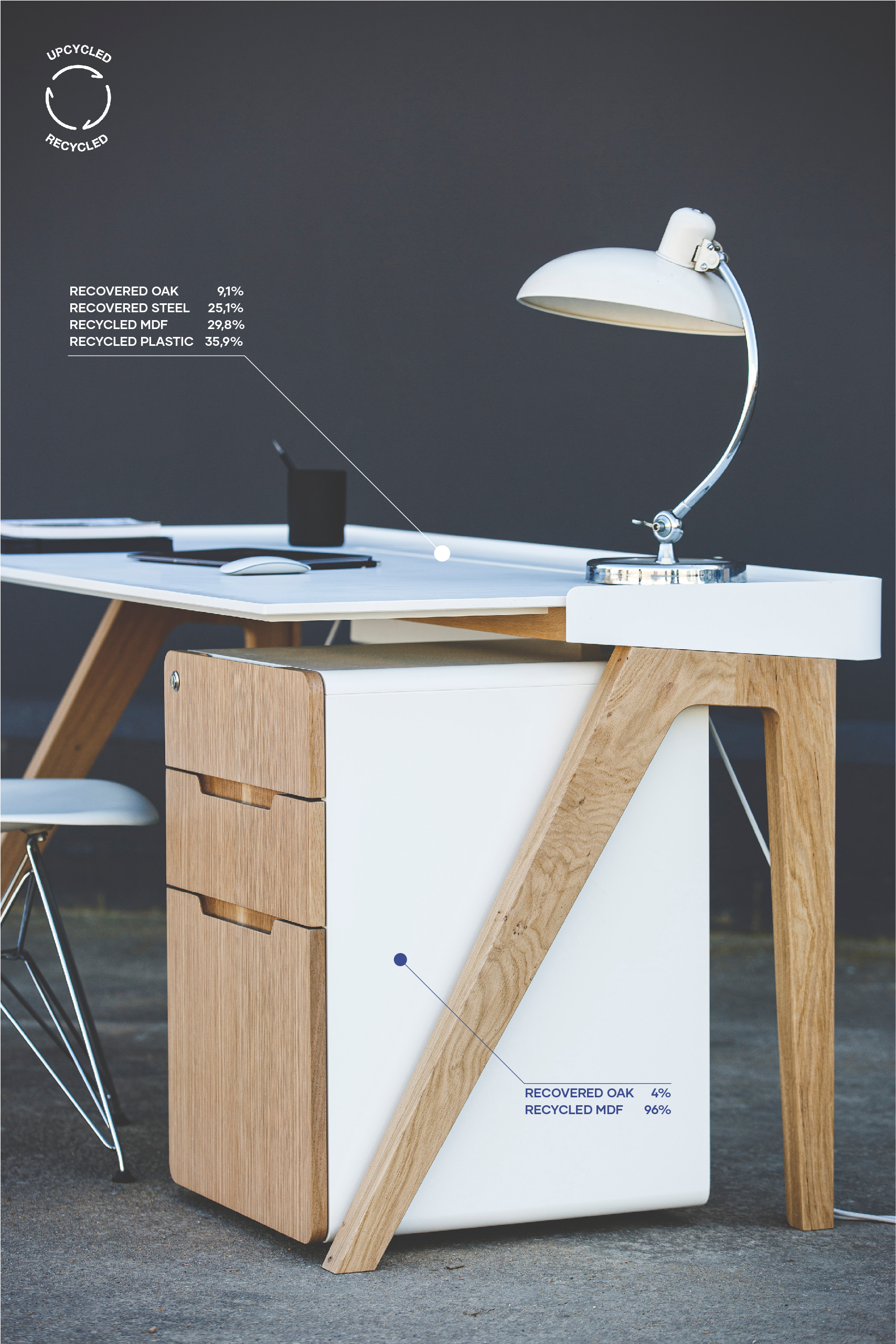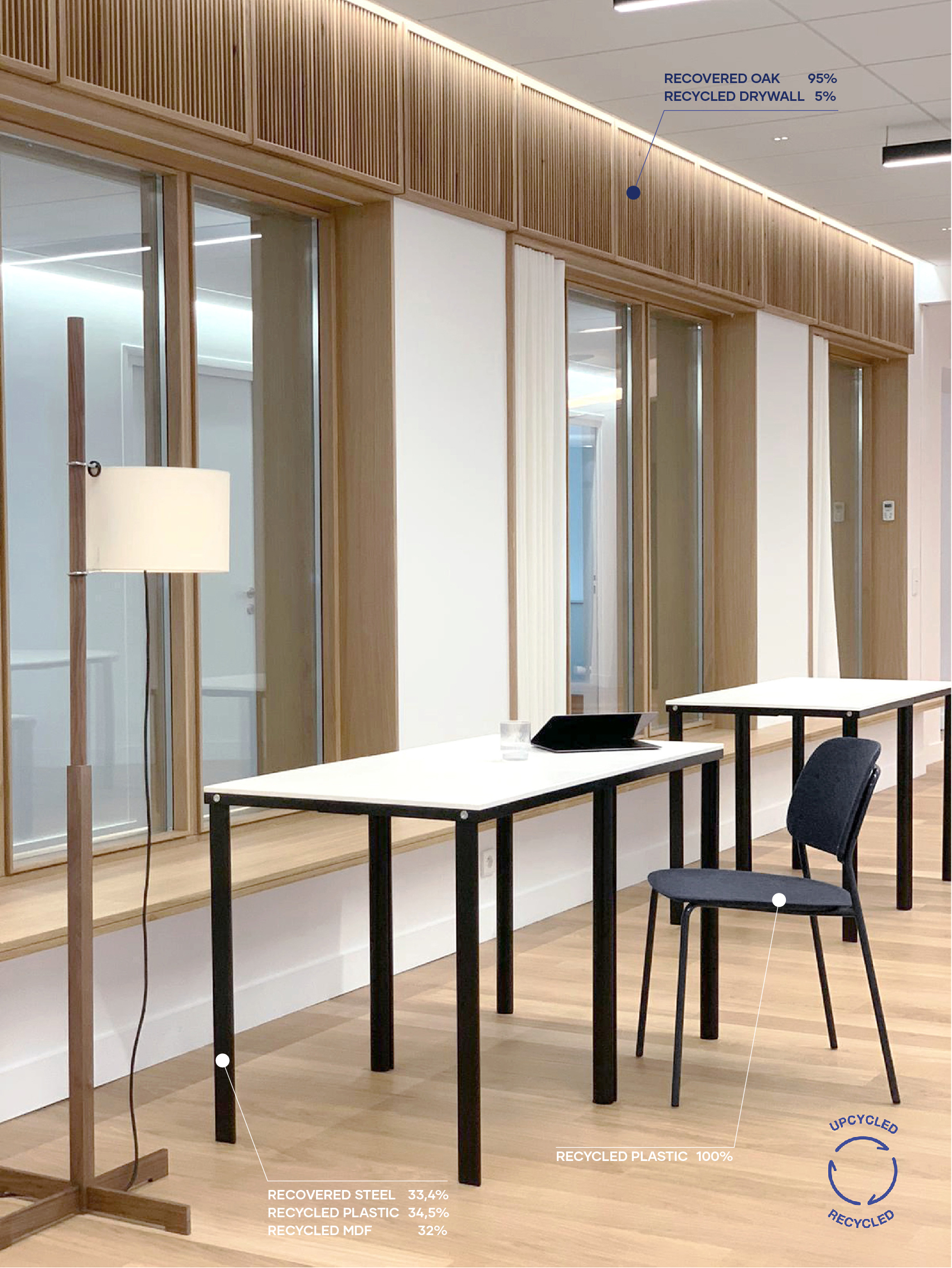Fern-deardesign studio 001

Useful information
- Team members
- Cécile Imbert Ignasi Llauradó
- Country
- France
- Keywords
- Eco-design sustainability upcycling recycling furniture interior design workspace
Short Description
Eco-responsible high-end workspace solution based on the dialogue of upcycled & recycled materials.
Detailed Description
This project tells the story of a collaboration between people who take a stand for integrity and sustainability. The core is a juxtaposition of upcycled and recycled materials optimized for the workplace environment. This project is an eco-responsible interior design & furniture of the Mansartis offices, located in Place Vendôme in Paris. It is built in a future-forward spirit driven by innovation, where French Editor Fern· and Catalan design firm deardesign studio partnered to create a new way of producing. Rather than using the widespread linear model based on extracting, producing, consuming, and discarding, the project adopts a new model for optimized life cycle of products by using ecodesign tools. The project aims to answer the professionals’ eagerness to have a positive impact on the environment. The result is approximately 70% of upcycled and recycled materials.
Project Details
- Does your design take social and cultural challenges and human wellbeing into consideration?
We strongly believe that any project is a new cultural and social challenge, as also a way to consider human wellbeing in a new form. Particularly here, we see 2 scales of implementation, a project-size scale, with direct results, but also a wider scale, with more indirect outcomes.
Regarding the project itself, decisions were made, such as working hand-in-hand with local craftsmen but also by a local sourcing of materials or raising awareness among our clients in its daily habits and good practices. These choices are based on the idea that individuals have a potential to participate to a global change, and it’s our role to facilitate it. As long as for the wellbeing of the user, solutions as maximizing the use of natural light or offering various types of workspace related to very specific needs are different ways to participate to wellbeing of the final user.
In a wider scale, we keep working on generating a community of people that were not formerly active, but who really want to take a stand for sustainability. We are implementing a network of skilled people around the idea of respecting nature & humans needs. This is our way to build and grow a virtuous circle, and to integrate as much professionals as possible in our adventure.
- Does your design support sustainable production, embodying circular or regenerative design practices?
Yes absolutely! Our products are designed by combining recovered and recycled materials. Our purpose is to reduce environmental impacts of our products by adding value to waste, optimizing product life cycles. With particular attention to textures and details, this collection characterizes the second life of unwanted materials and demonstrates how each comes together for a new purpose. The result is that the interior design project was made with 70% of upcycled & recycled materials. But our proposal is not only based on an approach through materials, it also includes taking into account the life cycle of products. Our production is eco-designed so that each component at the end of the furniture's life is possible. We also offer our customers to dispose of their old furniture responsibly, by offering recycling, recovery or second life solutions in partnership with the recycling and recovery sectors.
- Does your design promote awareness of responsible design and consumption?
First come an awareness then a tipping point. The planet's resources are dwindling. Our design demonstrates that it is possible to leave behind the linear model of extracting, producing, consuming, and discarding. Instead, we are generating a virtuous circle through upcycling & recycling and by optimization of the life cycle of products. We deeply believe in the awakening of a global ecological consciousness that will promote eco-design and the circular economy.
The 21st century company cannot remain on the sidelines of these environmental issues. And it’s our mission to help companies to first understand it, and then respond to this call. Today, the challenge for business leaders is to adapt their strategy no longer solely on the prism of the capacity to produce or sell, but around the meaning of their company's mission. Large companies, who qualify as mission-oriented companies, are indicative of this awareness. Because we are also convinced that eco-design is a collaborative process, we are engaged everyday with all stakeholders of our project to reduce our impact on the environment. Our purpose is to disseminate an eco-responsible spirit, by producing a guide to good practices which aims to raise awareness’ employees on simple gestures of daily business life which reduce the impact on the environment
By designing sustainable workspaces & furniture, we contribute to integrate sustainability in the core values of our clients and help them to develop a corporate culture of sustainability.
Images


